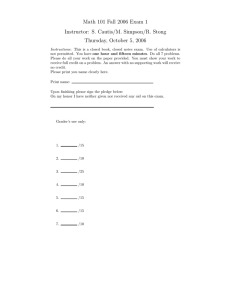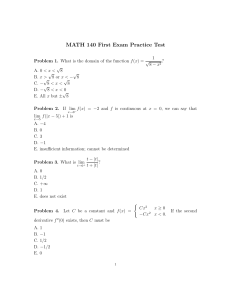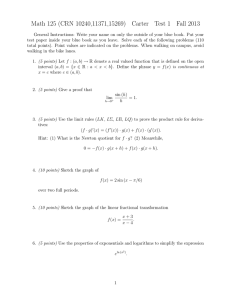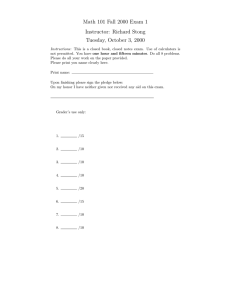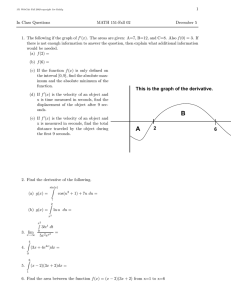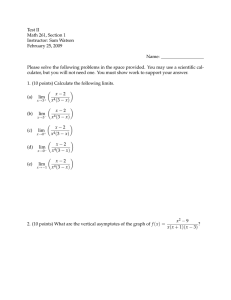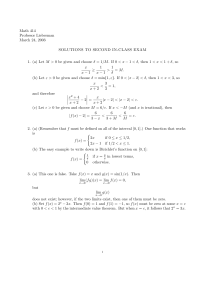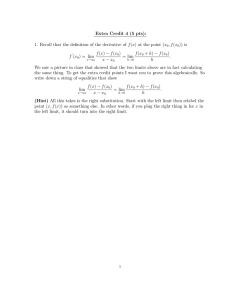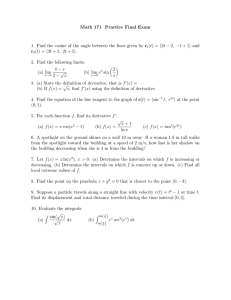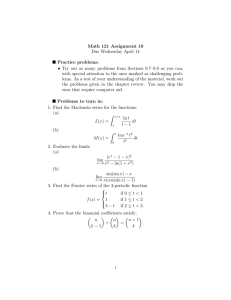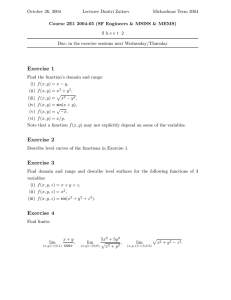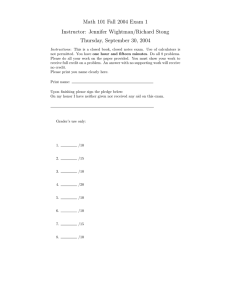Math 101 Fall 2002 Exam 1 Instructor: Richard Evans/Richard Stong
advertisement
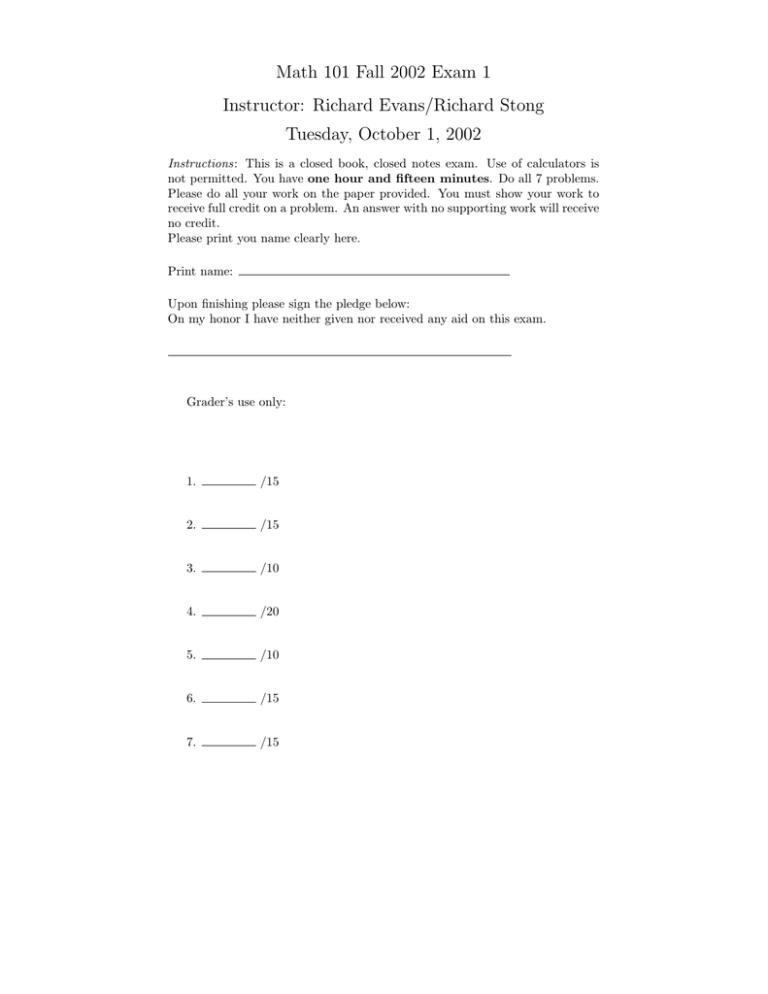
Math 101 Fall 2002 Exam 1 Instructor: Richard Evans/Richard Stong Tuesday, October 1, 2002 Instructions: This is a closed book, closed notes exam. Use of calculators is not permitted. You have one hour and fifteen minutes. Do all 7 problems. Please do all your work on the paper provided. You must show your work to receive full credit on a problem. An answer with no supporting work will receive no credit. Please print you name clearly here. Print name: Upon finishing please sign the pledge below: On my honor I have neither given nor received any aid on this exam. Grader’s use only: 1. /15 2. /15 3. /10 4. /20 5. /10 6. /15 7. /15 1. [15 points] Evaluate the following limits, if they exist. x2 +x−2 2 x→−2 x −x−6 (a) lim tan 2θ θ→0 sin 5θ (b) lim (c) lim x→1 2 x+1 −1 x−1 2. [15 points] Suppose c is a constant and the function f is given by: 2 c − x2 , x<0 f (x) = 2(c − x)2 , x ≥ 0 (a) Calculate the following limits: lim f (x) x→0− and lim f (x) x→0+ (b) Find a value of the constant c so that the function f is continuous everywhere. √ 3. [10 points] Find the derivative of f (x) = x + 3 using the definition of the derivative. (No credit will be given for finding the derivative by other means.) 4. [20 points] Calculate the derivative for each of the following functions: (a) (4x2 + 7x + 3)50 (b) (1 + 2x)5 sin(2x3 ) (c) 3 + √2x x+1 (d) cos2 (3ex ) 5. [10 points] Find the equation of the tangent line to the graph of y = tan(2x) + 3 sec x at the point (0, 3). 6. [15 points] Find the maximum and minimum value of f (x) = x1−x 2 +3 on [−2, 1]. Be sure to show all the steps you need to show in order to justify that your answers really are the maximum and minimum. 7. [15 points] A rectangle of perimeter 24 inches is rotated about one of its sides to generate a right circular cylinder. What are the dimensions of the rectangle which give a cylinder of maximal volume? (Recall that the volume of a right circular cylinder with height h and radius r is V = πr2 h.)
